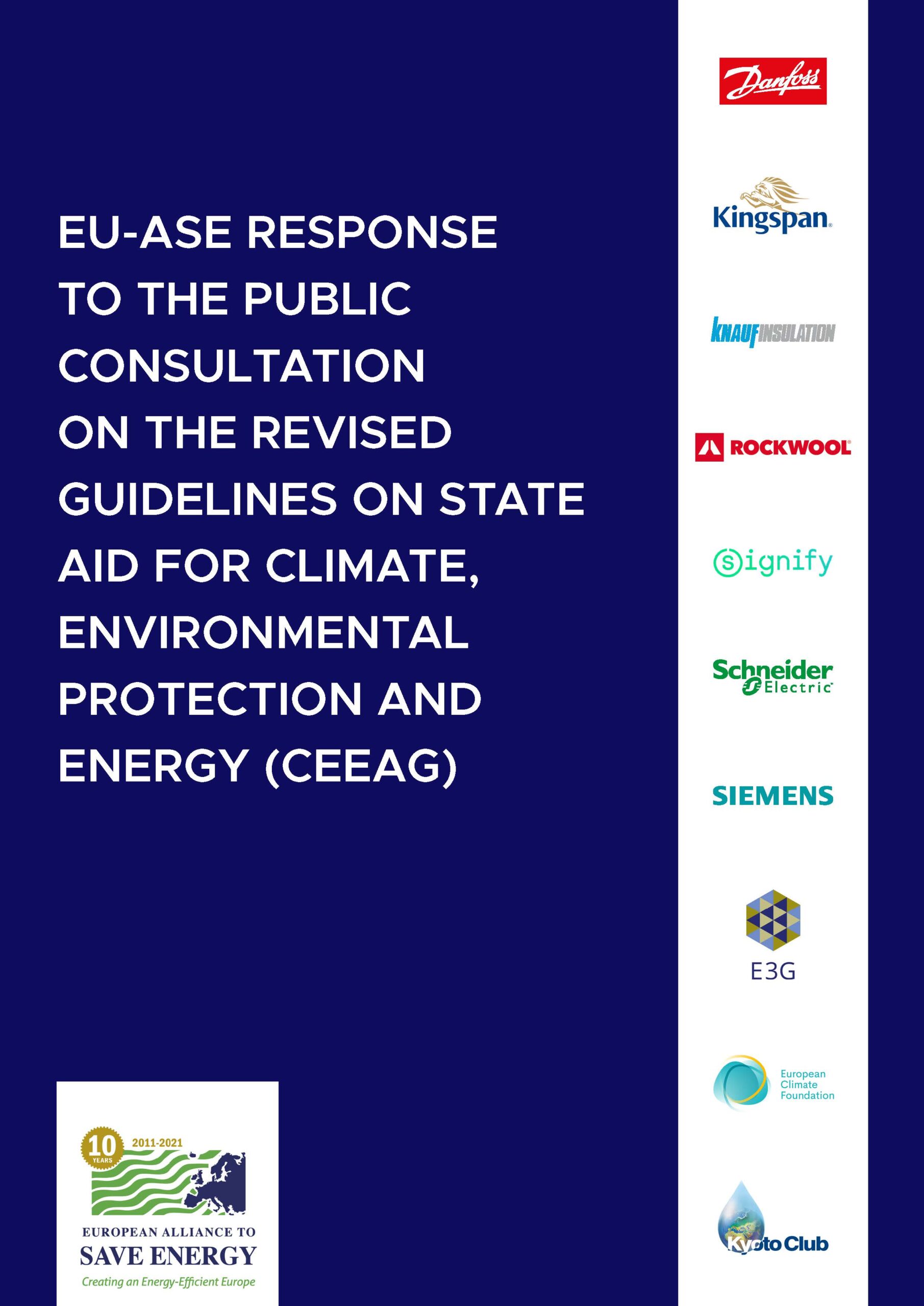
The European Green Deal target to reach climate neutrality by 2050 calls for unprecedented levels of public and private investments accompanied by deep reforms. In this context, well-designed State Aid schemes will be key to unlock investments and make the best use of public funds.
As part of the ongoing revision of the Climate, Energy and Environmental Aid Guidelines (CEEAG) and the General Block Exemption Regulation (GBER), the Commission pledged to set simpler, clearer, and easier-to-apply State Aid rules for Buildings renovation programmes, in particular in the residential and social sectors. Additionally, aid to energy efficiency investments was to be simplified and enhanced, as announced in the Sustainable Europe Investment Plan and in the European Green Deal Investment Plan.
The European Alliance to Save Energy is happy to provide its feedback on the revised CEEAG. Energy efficiency is the bedrock of a decarbonised EU energy system: energy efficiency gains are essential to achieve the increased GHG emission target reduction of 55% by 2030 and full decarbonisation by 2050. In its current form, the CEEAG insufficiently supports the uptake of energy efficient measures and exposes the EU to the risk of missing its GHG reduction target for 2030 and 2050.
EU-ASE calls on the European Commission to:
1. Assess all measures against the Energy Efficiency First principle
2. Level the playing field in aid intensity for energy efficiency measures (CEEAG Annex 1 and Art 38 GBER)
3. Simplify the definition and methodology to determine cost eligibility (para. 125 and Art 38 GBER)
4. Provide clear guidance on current State Aid rules with a practical approach
Download the full response
Read more in our paper: Boosting energy efficiency through the revision of State Aid rules
